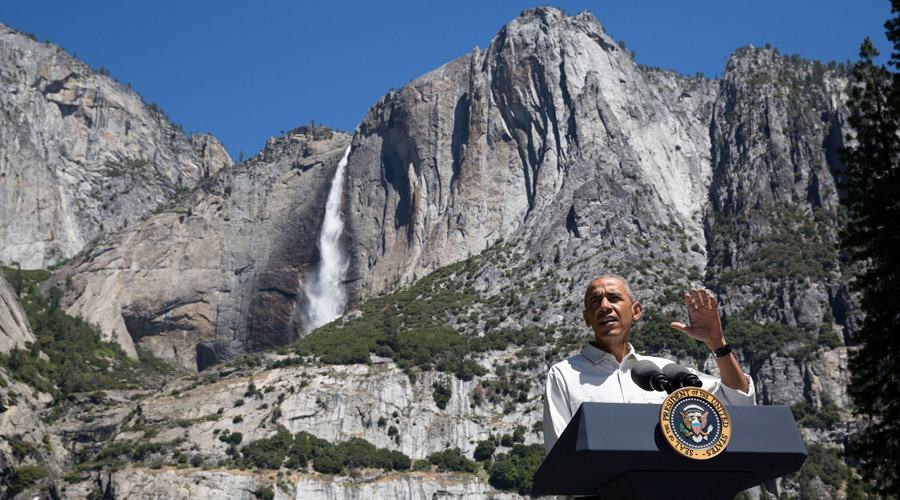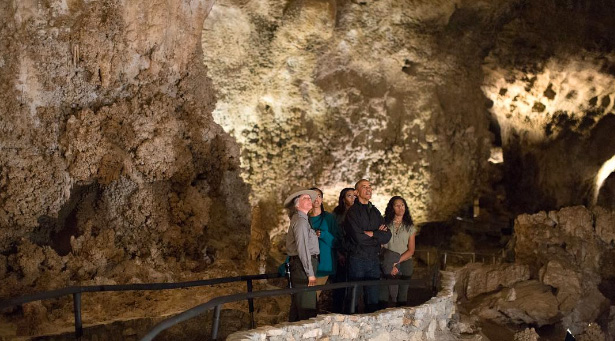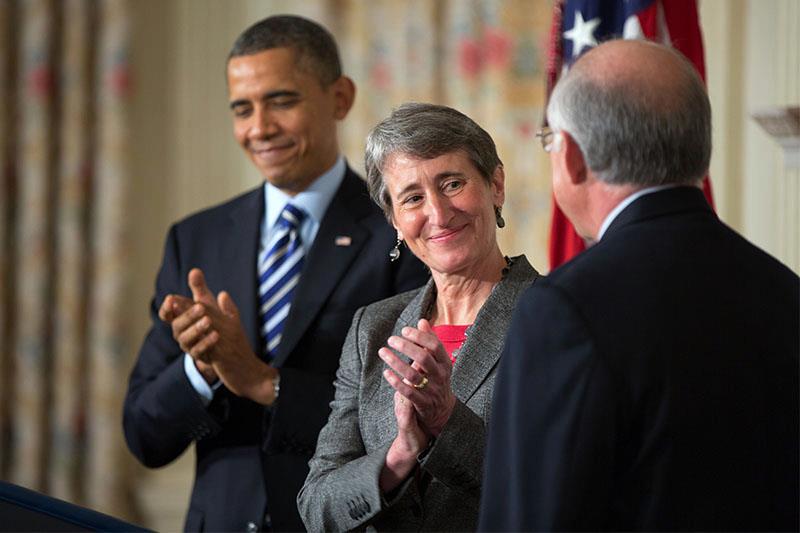By Charlie Lunan
Just days after its love affair with the Obama Administration reached a crescendo, the outdoor recreation industry and its allies in the environmental and conservation communities got a stark reminder of the limits of executive power.
The buzzkill arrived June 22 in the form of a federal court ruling blocking the U.S. Department of Interior from enforcing stricter rules on fracking on federal lands. U.S. District Court Judge Scott Skavdahl, who had been appointed to the bench in Wyoming by President Obama, ruled the Administration had overstepped its authority in seeking to impose the regulations.
It was the latest in a series of court rulings overturning policies the administration sought to impose via executive order to sidestep opposition in Congress. Last fall, a federal judge blocked a new Environmental Protection Agency rule that would have brought more waterways and wetlands under federal protection. In February, the U.S. Supreme Court ruled against the Administration in a case testing its authority to limit carbon emissions from power plants.
Wins and Losses
Wednesday’s ruling on the fracking case followed a more positive week for the industry and Outdoor Industry Association (OIA), which represents 4,000 businesses, including dozens of outdoor brands owned by public companies such as Columbia Sportswear Co., Deckers Brands, Newell Brands, Vista Outdoor, VF Corp. and Wolverine Worldwide Inc. and hundreds of retailers ranging from REI to mom-and-pop shops.
On June 17, U.S. Secretary of Agriculture Tom Vilsack and U.S. Forest Service Chief Tom Tidwell announced steps aimed at making it easier for the recreation community to access national forests. The new policies, once fully implemented, will streamline the process of securing permits for guides, outfitters, non-profits and educational institutions. Many forests have had permit moratoriums for years that have prevented a wide range of user groups from the opportunity to experience their public land.
“I’ve been impressed with the open-minded and solution-oriented approach among the leadership team of U.S. Forest Service and key members of the Department of Agriculture leadership team,” said Dan Nordstrom, CEO of Outdoor Research and a founding member of Outdoor Access Working Group, which spearheaded the effort on behalf of organizations representing outdoor enthusiasts, advocacy groups, educators, guides, outfitters and gear manufacturers. “Based on initial meetings that took place just over a year ago, they have moved quickly and thoughtfully toward a set of policy reforms and modernizations that are true game changers,” he said.
The next day, President Obama’s used a Father’s Day Weekend visit to Yosemite National Park and two other national parks to draw attention to the centennial of the chronically underfunded National Park Service and outdoor recreation’s huge contribution to the U.S. economy.
“These parks help to drive our national outdoor industries – boots and tents, and mountain bikes and snowmobiles – and that industry supports 6 million American jobs and almost $650 billion in spending every year,” Obama said, citing OIA data. “That’s a lot of fleeces and headlamps.”
That one sentence lifted the hearts of many in the outdoor industry.
“The past few days have been a significant and exciting time for the outdoor industry, as President Obama used his visit to Yosemite to call out the economic contribution of the outdoor industry,” exclaimed OIA Executive Director Amy Roberts in an email to members. “In doing so, he became the first president to specifically refer to the economic figures detailed in our own industry’s Outdoor Recreation Economy Report.”
Unprecedented Access
By most accounts, OIA’s staff and members have enjoyed unprecedented access to the executive branch during the Obama Administration.
“Throughout the Obama administration, there was clearly increased attention to the outdoor industry and our policy priorities,” OIA Manager of International Trade Rich Harper wrote in response to questions SGB Executive submitted to OIA’s Government Affairs team. Early in his first term, Interior Secretary Ken Salazar, for example, launched the America’s Great Outdoors initiative and actively sought input from the outdoor industry. He also cited the renewal and funding of the Land and Water Conservation Fund as an administration priority. “The president’s selection of former REI CEO Sally Jewell (pictured below) to succeed Salazar clearly indicated support for the outdoor industry and our legislative agenda,” Harper added.
“The administration also cited OIA as a key stakeholder in the negotiation of Trans Pacific Partnership and made outdoor industry issues a priority,” Harper continued. “In particular, labor and environmental provisions do not get done without strong leadership and hard work from the administration.”
Obama’s leadership on climate change has also endeared him to the outdoor recreation industry as did his decision last fall to recommend Congress designate 12 million acres within the Arctic National Wildlife Refuge as wilderness. While only Congress can create wilderness areas, the designation protects the area from oil exploration and other high impact uses until Congress or future administrations act.
Climate Change, TPP and Protecting Public Lands
Asked what will be viewed as the Obama Administration’s most important contributions to the outdoor rec economy 25 years from now, the OIA Government Affairs Team listed:
- Signing the COP 21 Agreement on Climate Change, known as “The Paris Agreement,” which establishes global goals for reducing carbon emissions and slowing global warming, which represents a major threat to the winter sports industry.
- Concluding the Trans-Pacific Partnership (TPP) talks. If ratified by enough countries, the TPP will eliminate or dramatically reduce tariffs on thousands of outdoor products imported from the 11 other countries that have signed the deal, including Vietnam, which is a major supplier of packs and is rapidly growing its share of U.S. apparel and footwear imports.
- A prioritization of investment in America’s land and water through LWCF and other investment programs, monument designations and a renewed conservation agenda. After being lambasted by some progressive in 2013 for doing more to promote energy production than wilderness on federal lands, Obama has gone on to protect more public lands and waters – more than 265 million acres – than any administration in history.
“International trade issues that are important to the outdoor industry received the most visibility from the president,” observed Harper. “From launching and completing negotiations on the TPP, to supporting U.S. manufacturers through the miscellaneous tariff bill, the president has set a clear agenda and asked for industry support getting it through Congress.”
He noted that when TPP negotiations started in 2007, the U.S. was the only country calling for tough and enforceable labor and environmental provisions backed by OIA.
“United States Trade Representative Michael Froman – with the clear support of the president – convinced all TPP parties to accept the U.S. position,” Harper said.
Still, there was controversy within the industry over the TPP. OIA couldn’t get its entire membership to back it, including some high-profile opposition from Patagonia, which said the environmental and labor protections didn’t go far enough.
An Ephemeral Legacy?
Asked which public policy gains made during the Obama Administration are the most vulnerable to being overturned by future administrations or Congress, OIA’s Government Affairs team listed the same three items.
“Specific elements of the COP 21 Paris climate agreement may never be ratified; the entire agreement itself may not be ratified in the near future, depending on which party controls each chamber of Congress,” wrote Harper.
Likewise, the TPP faces a tough road to congressional ratification and has been opposed by both presidential candidates.
“You may see the next administration reopen negotiations to address specific issues, close it and send a revised version of TPP to Congress (e.g. President Bill Clinton re: NAFTA) or the next president may abandon TPP altogether (i.e. Trump),” Harper said.
Future presidents could also repeal wilderness designations made by Obama, although OIA staff notes that “checks and balances” in the three branches of government have thus far blocked the “radicalized or extremist agenda” demanding federal land be returned to the states.
“Climate change is a contentious issue in the current Congress and that is unlikely to subside anytime soon,” Harper wrote. “It will, however, be interesting to see who the next president nominates to the Supreme Court as the Justices are often the last word on policy matters.”
Photos, video courtesy The White House


















